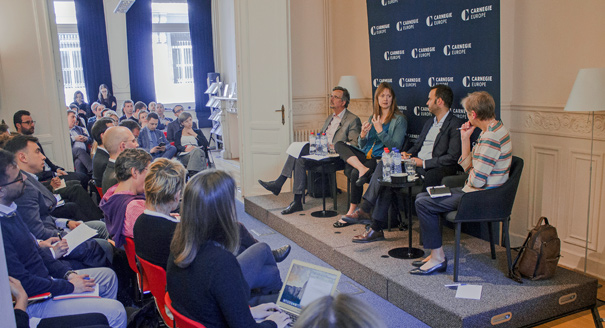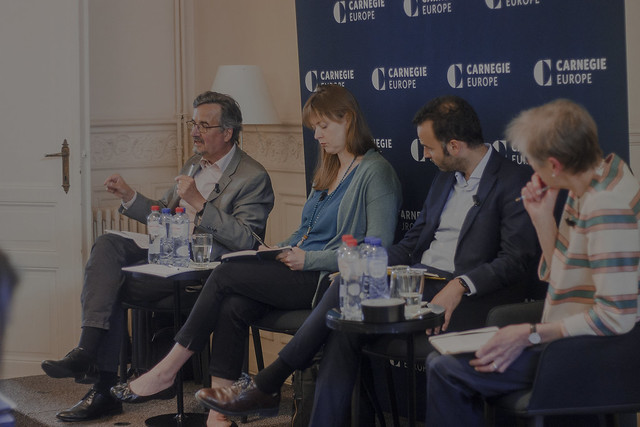Registration
You will receive an email confirming your registration.
Europe is in flux. The union is racing toward European Parliament elections, and public debates are increasingly dominated by inward-leaning discussions over Europe’s future, not to mention Brexit.
The risk is that EU foreign policy will take a back seat, just when it is all the more necessary. From Ukraine to Algeria and from Armenia to the Western Balkans, new political players who want to initiate change are emerging across Europe’s Eastern and Southern neighborhoods. Any paralysis on EU foreign policy regarding the union’s borderlands would be strategically and geopolitically shortsighted.
Carnegie Europe hosted a public discussion to take stock of the current political dynamics in Europe’s neighborhoods and consider what foreign policy challenges the EU faces over the next five years.
This event was held in the framework of the Horizon 2020 EU-LISTCO project and featured remarks by Heather Grabbe, director of the Open Society European Policy Institute; Pol Morillas, director of the Barcelona Centre for International Affairs (CIDOB); and Thomas Risse, professor of International Relations at the Freie Universität Berlin. Judy Dempsey, nonresident senior fellow at Carnegie Europe and editor-in-chief of the Strategic Europe blog, moderated.
A walking dinner reception followed.
IMGXYZ8316IMGZYX
audio
Photos
Heather Grabbe
Heather Grabbe is the director of the Open Society European Policy Institute and director of EU affairs. Follow her on Twitter @HeatherGrabbe.
Pol Morillas
Pol Morillas is the general director and senior research fellow of the Barcelona Centre for International Affairs (CIDOB). Follow him on Twitter @polmorillas.
Thomas Risse
Thomas Risse is a professor of International Relations at the Freie Universität Berlin.
Judy Dempsey
Judy Dempsey is a nonresident senior fellow at Carnegie Europe and editor-in-chief of the Strategic Europe blog. Follow her on Twitter @Judy_Dempsey.

